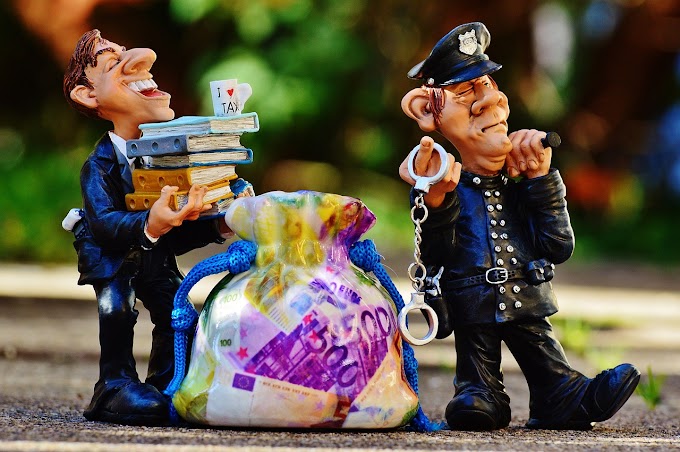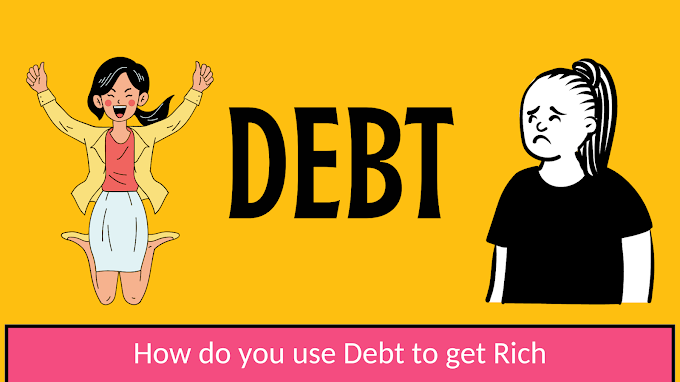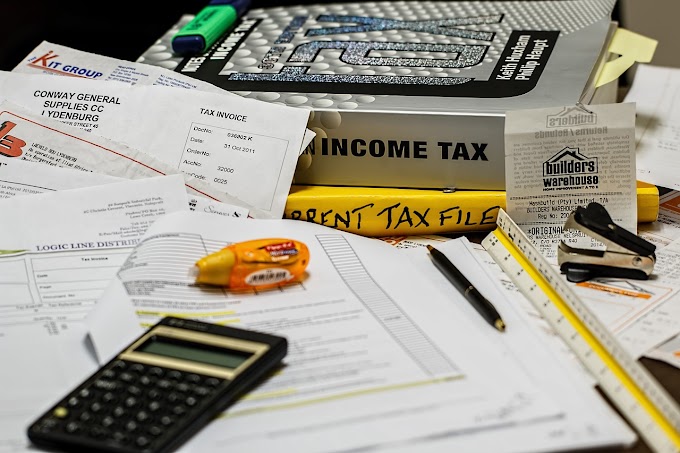It is pretty much a guaranteed negative return on investment you are guaranteed to lose money.
Let me explain a little bit more so let's say somebody needs money so they come to you to borrow it and they say can I borrow a thousand dollars from you.
Then next year can I give you 900$ back um no that obviously makes no sense but that is exactly what is going on around a couple of different countries around the world already specifically in Europe.
So people are actually getting into things knowing that they're going to be losing money. I've talked about this before but a lot of people probably don't even know they're in this because it can be hiding in your pension funds.
So you definitely want to check out what you're invested in. If you are invested in any foreign or domestic bonds just depending on where you are at in this world
For most people who are rational that obviously sounds like a bad idea why would I want to put my money into something with a guaranteed loss but I will get into that.
When you have a federal reserve specifically Jerome Powell who has been going against negative interest rates for the longest. They have been pretty firm our central bank is saying no we're not going to have negative interest rates but they also said things like no we're not going to cut interest rates.
Take anything anyone says with a grain of salt and always do your own research but what he's referring to is the federal funds rate and a lot of people kind of get confused with this.
Let me break that down a little bit more
The federal funds rate is the bank that the federal reserve pretty much charges for banks to lend to each other so banks have to keep a certain amount of money within their account at the federal reserve as a reserve right.
It's cash put aside to be a little bit liquid in the event that people actually want to come to take their money out in droves that they don't actually um run out of money right.
The rate that the federal reserve is talking about is that federal fund's rate and while it doesn't one-for-one impact the rates that we see as borrowers it kind of can right because if the banks have a lower interest rate they have to pay.
Then they can kind of give that to us in the form of lower interest rates for your car lower interest rates for your house and they do have to be more competitive.
So if the chase is giving like three percent for a home loan well maybe they can go ahead and do two and a half percent because the federal reserve reduced their federal fund's rate. They can do that right they can pass those savings down to us but it's not a guarantee and it's not a requirement.
The federal reserve has actually straight-up said we do not want to have negative interest rates because we don't want to affect the banks and let me explain how that makes sense.
The banks don't really have money okay before the march and I've said this a few times on my website but before march we had a reserve requirement which was at a maximum of 10%.
So for every $1000 they had in the bank they only really had to keep a hundred of that and they can go ahead and loan out that money another way to look at it is if they have a thousand dollars they can lend out ten times that amount because they only have to keep 10% of what they actually have.
Banks: The Main Creators of Money
If you want a little bit more background on that I have an article that goes into depth about how money is created and things like that but basically for the banks to even make a loan they create the currency there's not actually money in there for the most part.
Sometimes they do have deposits right so if I go to put my money in the bank they can go ahead and lend that money out but that's not a majority of where the money comes from.
The money is literally created when you need a car loan they're going to create $20,000 it becomes an asset and a liability for them it's a liability because they have to obviously give you that money but it's an asset because it comes back to them plus interest right.
If you borrow $20,000 you're going to pay back maybe $25,000 and that $5,000 is really where they make their income. So it's an asset and liability for them.
But if we have negative interest rates what would happen then? Well then they would create the money and give it to you which is a liability but then they wouldn't be getting any extra money back right in fact they have just loaned you money and expecting to get less back so where they're gonna get that money from because all this was just created right.
There's a problem there because they cannot create money and then guarantee the to lose money that's when the wealth is actually transferring back to the consumers and to us, little people and they can't have that but what is even the purpose of these negative interests anyway right well.
Purpose of Negative Interests
For example, let's say maybe you wanted a house but it's $400,000 and the interest rate is 4½ %. Well, that might be a little bit more expensive versus if they cut it down a ½ %. Well, it might be a little bit more affordable for you now.
You can go ahead and get into that big house that you wanted because now the interest rate isn't as high and then you'll be able to afford it better.
What they're hoping is?
By going into the negative territory that it will even further increase that and it might even drag people out who don't even want to invest in anything because if you're getting negative interest rates it's going to affect your savings account.
We already receive laughable interest rates right but if they go negative then you are basically paying the banks to keep your money. And people who are retired and really can't afford to pay anything else out. They might have to go out there and put their money in the stock market or put their money in bonds or something just to get some sort of return.
Because if you are living off of this money for the rest of your life. Then you're gonna have to have it make some money for you so that you can live.
By having negative interest rates you can force people into assets force people into loans and into debt or whatever that they want to get into just not keeping it sitting around because if you didn't know it's really important to have a velocity of money.
If we are getting all this money through stimulus and unemployment but we're not actually spending it out into the economy.
Then we don't have that velocity of money and that's what the federal reserve so desperately wants to quote-unquote maintain but they really want people to spend more because when you spend more it brings the prices back up.
Now you might be thinking oh well this sounds good I can get paid to take out a loan right. Like I'm about to get a car I'm going to get a house like I'm about to buy it all wait one second like I mentioned before it's really the federal funds rate that would be going negative.
They don't have to pass on those savings to us and even if they did pass it on to us it wouldn't be for everybody and it wouldn't be immediately in places.
Like Switzerland, only reliable borrowers can actually get to take advantage of those negative interest rates. With people who are still risky right because it doesn't matter what the interest rate is if you're risky you're risky.
Those people will not have access to negative interest rates. Also, the banks are already going to be strapped for cash. If you have a situation where everything is flipped around and what once was an asset for you is now a liability. Well, now they're more likely to be strict on what they're actually going to lend out.
Now if you're really risky we can't help you because we don't want to lose even more money from automatically guaranteeing a loss because of the negative interest rates and then you decide hey I'm not paying this back.
Also, they're more likely to attack things like your savings and increase things like your credit cards.
They'll be quick to give you negative interest rates on your savings account because then that'll be now income to them what once was a liability right if you put your money in the savings. They are supposed to be able to have it to give it back to you but now they're pretty much making a return on you keeping your money in the bank.
But I don't think it'll be the same thing for credit cards so you wouldn't see negative credit card interest rates at all you might see the opposite actually where they're like well damn. We're not making money from anything else but these interest rates are variable for the credit cards so we're gonna jack that up.
Interest Rates On Credit Cards
The whole purpose of this is to stimulate the economy to encourage people to spend but it might encourage people to do the exact opposite because we still have cash we are not in a digital society yet. So people can just run to the bank and pull out their cash.
As long as we still have cash people still have an exit strategy and they can still kind of pull it out to protect their principal and honestly there's gonna be a risk in anything you do.
So yes you do run the risk of getting robbed but that's at least a potential if you keep your money in the bank that's a guarantee you're gonna lose that money right.
So we'll see what happens in the countries that have already established negative interest rates it hasn't seemed to make any notable dramatic life-changing improvements in their growth in their GDP right!
It doesn't seem like it not sure why our president is calling for it and this is not a political thing um at all but negative interest rates literally make no sense it takes the incentive out of investing right. It takes the incentive out of people trying to loan other people money so I'm not really sure where we would end up with that.
Treasury Bonds
So you and I can go buy a bond and we're basically giving our government money but a lot of foreign investors actually invest in America if we have negative interest rates.
Well, then what's the incentive for them to invest over here? They can just stay in their countries and get a negative interest rate so that would put you know downward pressure on the demand for dollars.
After the financial crisis of 2008 that's when people really started experimenting with negative interest rates so this is really still new territory. There's really no way that we know for sure where it will go but definitely let me know in the comments what you guys think about it.
All right that will do it if you like this article then please subscribe and share with your friends and if you have anything else going on you know what to do so next time keep your money up.
*Please be sure to do your own due diligence before making ANY financial decisions. On my Website I share with you my research but please verify everything for yourself! I do not give investment advice, just share my thoughts and my choices!*











